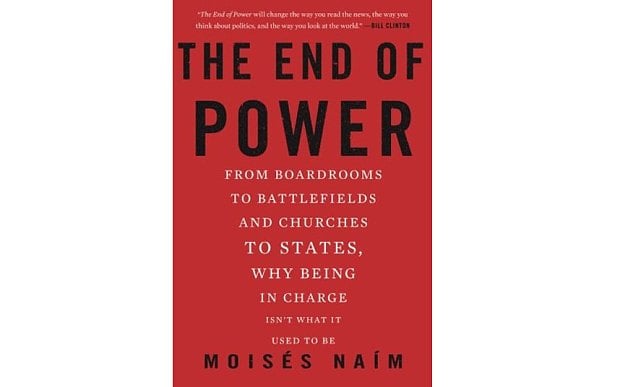


Much of my focus will be on the power of the state and how it is used for greater efficiency. In this critique, I hope to examine the thesis of Moises Naim in his book “End of Power” by speaking to these questions and other observations he alluded to. Does deconcentrated/decentralization constitute a decay of power?.Does power have different dimensions apart from “power over”?.Notwithstanding the good disposition of ideas, the following questions remain unanswered The fundamental question that it raises is “how has power reinforced itself under this growing order of “more”, “mobility” and “mental” revolutions”? In his opinion, the widely accessible nature of modern day power constrains leaders in the application of their powers and consolidating or maintaining their hold on power. Resulting from these, he argues that the barriers to power are fading out making it easier for people to rise to the corridors of power. With internet and virtual mobility, people are abreast with best practices, which now forms the bases for their demands on their respective leaders. This has resulted in a paradigm shift from the traditional way of perceiving power as sacrosanct and emboldened people to seek accountability and demand that their leaders are called to book, making them more difficult to control. With people acquiring and seeking more knowledge, there is a higher propensity that they can make better judgments. More radical of his prepositions was the “mental revolution”. The ease with which people can move across countries, in his opinion, has exacerbated the decay of power.

He examined the changing constellations of power of the State, Political Institutions, International Bodies, Businesses and Multinational Corporations.īy “more revolution” he meant that the exponential growth in population, life span, internet usage, media and knowledge amongst others, have made difficult the control of people and the consolidation of power. He premised his thesis on the “more”, “mobility” and “mental” revolutions, which are fostered through the “muscle”, “pitch”, “code” and “reward” channels of exercising power. The question that readily arises is “is power ending?”

Backing his claim with numerous examples and testimonies from Authorities in various facets of human endeavor from academia, economic, social, religious to the political, his book is an important addition to the discourse on the ever-changing power dynamics of the world. He theorizes that power is easy to gain, difficult to use and hard to keep, in modern days. Moises Naim in his book “End of Power” challenges the traditional notion of power.


 0 kommentar(er)
0 kommentar(er)
